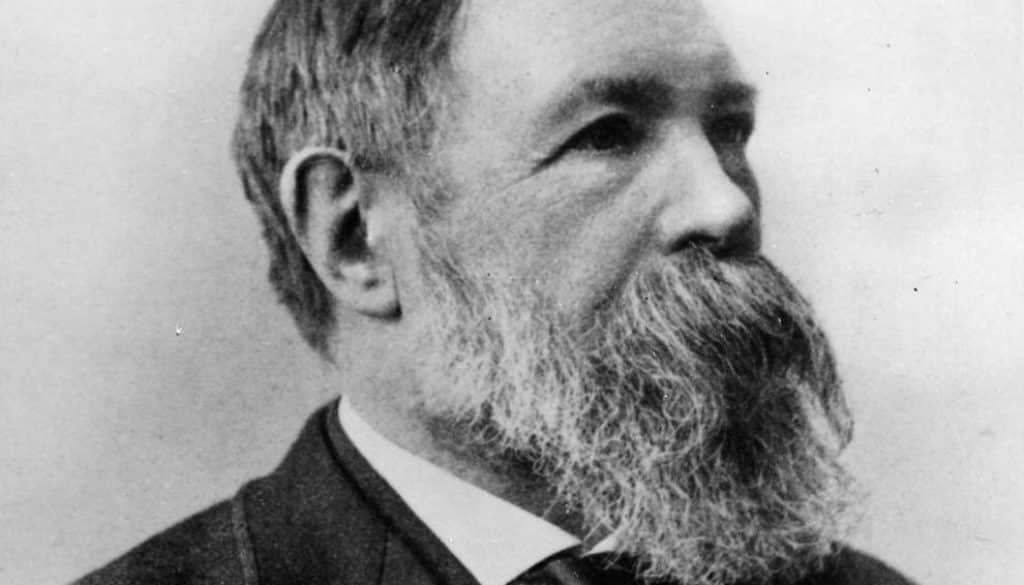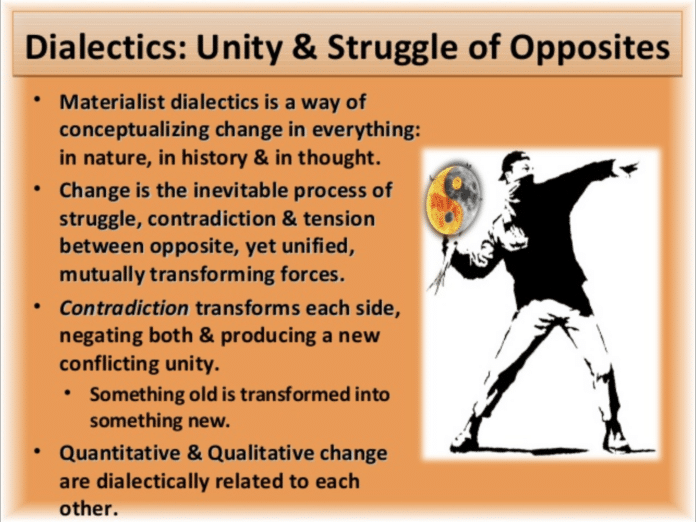The following is taken from https://www.britannica.com/ and provides an easily accessible explanation as to how reality is created. The coming together of ideas creates other ideas and so they continue. It provides an excellent understanding of how things change and continue to change ceaselessly. For example Y (an idea or thesis) meets X (an opposing idea or antithesis) and creates Z (a new idea or synthesis) . However, Y and and X and consequently Z only exist because of the material conditions in which they are situated. The nature of an economic ideology in itself creates a political and cultural history that determines reality moving forward. It is only when an outside economic… ideology provides alternative ideas that the nature of the former’s economic reality can begin to transform and in time be replaced.
‘Dialectical materialism, a philosophical approach to reality derived from the writings of Karl Marx and Friedrich Engels. For Marx and Engels, materialism meant that the material world, perceptible to the senses, has objective reality independent of mind or spirit. They did not deny the reality of mental or spiritual processes but affirmed that ideas could arise, therefore, only as products and reflections of material conditions. Marx and Engels understood materialism as the opposite of idealism, by which they meant any theory that treats matter as dependent on mind or spirit, or mind or spirit as capable of existing independently of matter. For them, the materialist and idealist views were irreconcilably opposed throughout the historical development of philosophy. They adopted a thoroughgoing materialist approach, holding that any attempt to combine or reconcile materialism with idealism must result in confusion and inconsistency.

Marx’s and Engels’ conception of dialectics owes much to the German idealist philosopher G.W.F. Hegel. In opposition to the “metaphysical” mode of thought, which viewed things in abstraction, each by itself and as though endowed with fixed properties, Hegelian dialectics considers things in their movements and changes, interrelations and interactions. Everything is in continual process of becoming and ceasing to be, in which nothing is permanent but everything changes and is eventually superseded. All things contain contradictory sides or aspects, whose tension or conflict is the driving force of change and eventually transforms or dissolves them. But whereas Hegel saw change and development as the expression of the world spirit, or Idea, realizing itself in nature and in human society, for Marx and Engels change was inherent in the nature of the material world. They therefore held that one could not, as Hegel tried, deduce the actual course of events from any “principles of dialectics”; the principles must be inferred from the events.

The theory of knowledge of Marx and Engels started from the materialist premise that all knowledge is derived from the senses. But against the mechanistic view that derives knowledge exclusively from given sense impressions, they stressed the dialectical development of human knowledge, socially acquired in the course of practical activity. Individuals can gain knowledge of things only through their practical interaction with those things, framing their ideas corresponding to their practice; and social practice alone provides the test of the correspondence of idea with reality—i.e., of truth.
The concept of dialectical materialism—which is a theoretical basis for a method of reasoning—should not be confused with “historical materialism,” which is the Marxist interpretation of history in terms of the class struggle.
There exists no systematic exposition of dialectical materialism by Marx and Engels, who stated their philosophical views mainly in the course of polemics.’
Jason Cridland
PLEASE SUPPORT US FOR JUST £2 A MONTH







